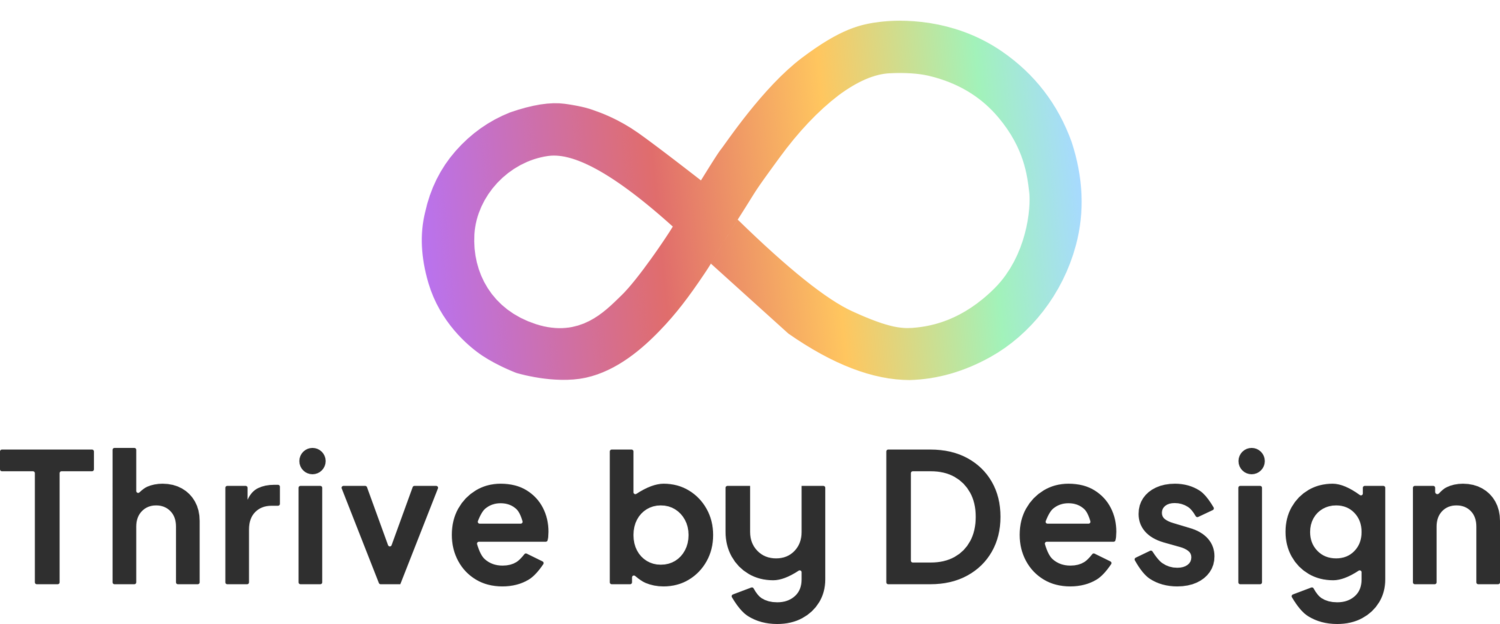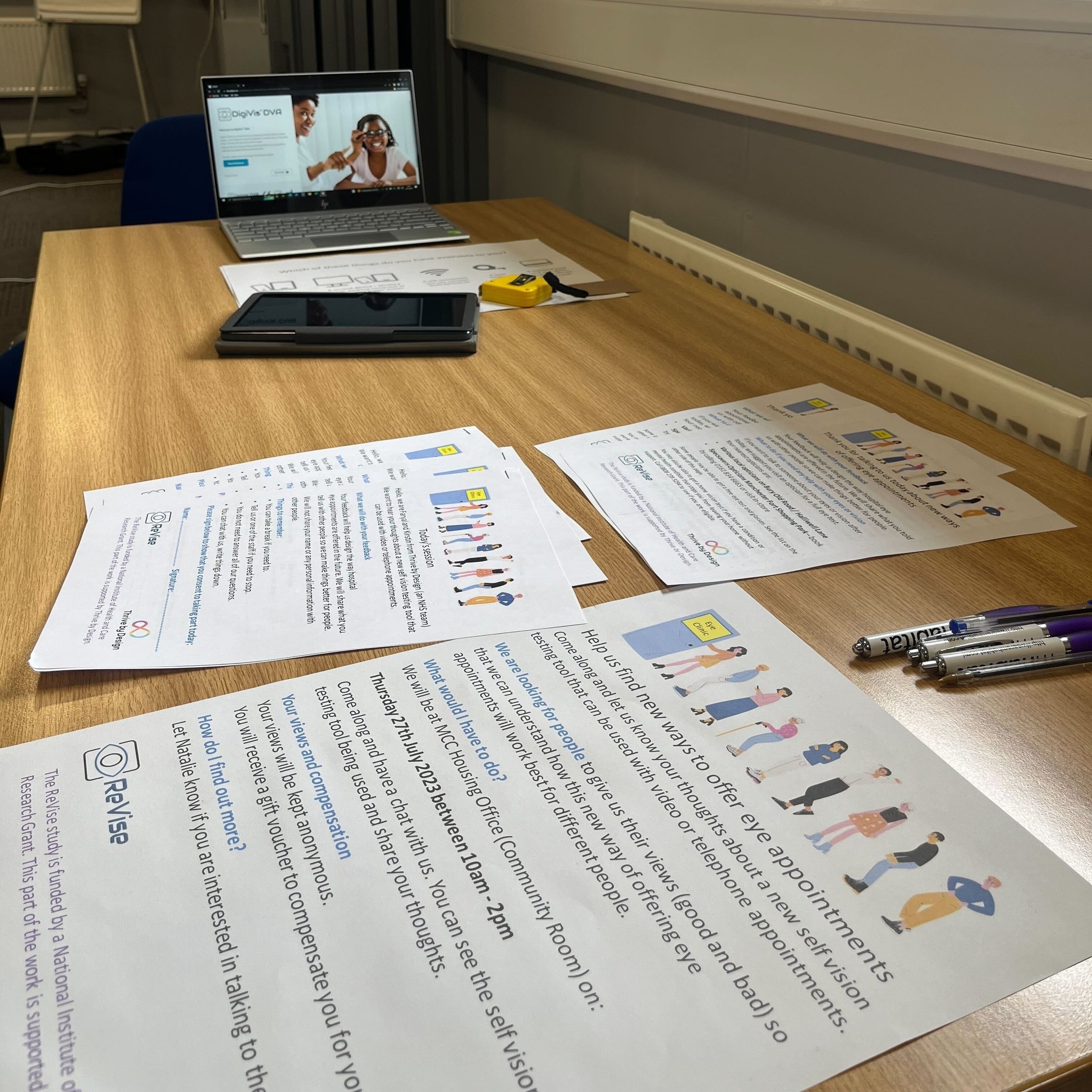ReVise Research Study - One year on
Thrive by Design have been working alongside Cambridge University Hospitals NHS Trust, Northwest Anglia NHS Trust and Manchester University Hospital NHS Trust as part of a research study (ReVise), funded by the NIHR Invention for Innovation (i4i) programme. The study looks to explore how practical and accessible it will be to offer remote consultations supported by vision self-testing (using the ‘DigiVis’ tool) for eye clinic appointments. We are happy to announce the first few stages of the research study have been completed, so it is a great opportunity to reflect on some of our findings and share the journey with you.
DigiVis is a web app that has been developed by NHS ophthalmologists and orthoptists to enable people to self-test their vision without having to visit a clinic. It is a quick and efficient way to test and monitor vision in patients aged 4 years and over, minimising the number of hospital visits needed. If you would like to find out more about the project visit our introduction piece here.
Thrive by Design have been supporting the study by carrying out fieldwork with people in local communities to the participating NHS sites. This entailed exploring the barriers and enablers that people in communities may face if offered a remote consultation with a vision self-test and understanding how this may work for different people, most importantly those who may be at risk of being digitally excluded. This work will then inform the co-design of an implementation model that will set out how this new way of supporting people could be offered.
We have explored how remote consultations that are supported by self-vision testing may work for different people, including:
What factors may influence how people are able to access and use the technology.
How people will use this information and interact with their eyecare specialist using a telephone or video channel.
Any considerations that may need to be reviewed to provide a streamlined remote service.
Recommendations to be designed into the implementation model to promote equitable access to eyecare for different people.
We made a total of 6 visits to different community organisations in a range of settings. This included visits to two organisations in each city; Manchester, Peterborough and Cambridge.
To decide on the areas and organisations to visit we used our very own digital inclusion map to highlight areas where there may be a higher risk of digital exclusion. The map provides detailed information about the local areas and includes information such as the number of opticians in the area. To find out more about how you could utilise the digital inclusion map for your needs read our blog here.
Some of the organisations we attended who are continuing to carry out amazing work in their communities:
Age UK Wythenshaw, Aging Well, Crossacres Resource Centre – a day centre supporting elderly people in the local community with an arts & crafts group. Specifically supporting those who are lonely and offering support where it may be required.
Digital Skills group, North Manchester Community Partnership – a digital skills group based at the heart of Manchester supporting people to access digital and providing ‘Learn my way’ training opportunities. Also offering support around employment and form filling.
The Light Project, Peterborough – based at The Garden House a stone's throw away from Peterborough cathedral estate offering support and information to people experiencing homelessness. Consisting of various services such as; housing, general health, mental health, hairdressing and more, providing an all-round holistic approach.
Cam Sight, Peterborough – supporting local people of all ages living with low vision and blindness. Working to enhance independence, improve wellbeing and inclusion - done by either arranging activities or supporting individuals to access devices that can benefit their lives.
Cambridge Online, Cambridge – a fantastic organisation supporting people in the local community to access to computers and the internet. Aiming to improve digital inclusion and access and support with forms and online skills. They specialise in helping disabled and disadvantaged individuals.
Coton Village Hall, Internet Club, Cambridge – a small peer-to-peer group meeting regularly to support each other with digital skills and tasks. This can consist of filling forms, printing and online services such as emails, shopping or other relevant requirements.
We would like to thank these organisations for the opportunity to work with them and allowing our facilitating and co-design team to visit and carry out our research.
The insights and feedback gained following this fieldwork have been refined and analysed to support the plans for implementation and how best to support people in an equitable and accessible way.
An image from one of the visits in Manchester alongside the Digital Skills group with North Manchester Community Partnership.
Image of The Garden House in Peterborough as part of The Light Project.
Image from our visit at the local Cambridge site with Cambridge Online displaying their banner.
More information will be available in the future about how the implementation model testing works across several eye clinic sites.
If you have any questions with regards to this research study or would like more information, please get in touch on thrivebydesign.lypft@nhs.net




